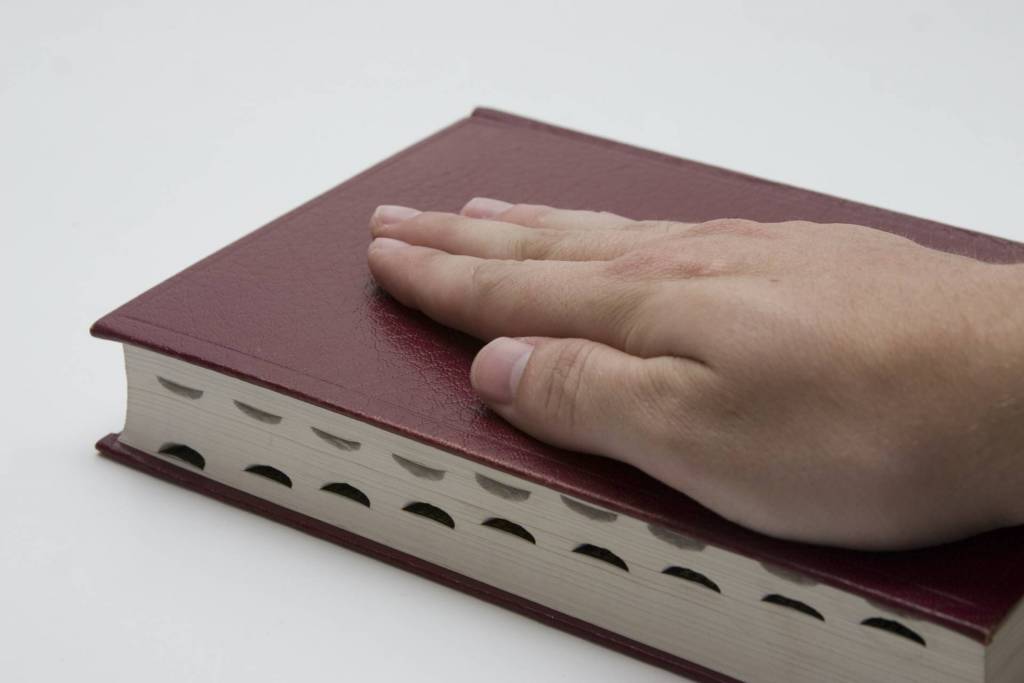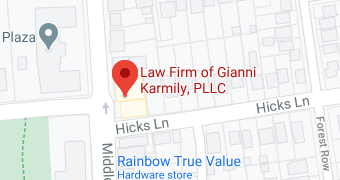If you’ve been charged with third degree criminal mischief in New York State, you need to consult with a criminal mischief defense lawyer right away. You could be facing serious penalties if convicted under New York Penal Law.
With his extensive legal background, considerable courtroom experience, and an impressive record of success on behalf of his clients, Nassau County, Long Island criminal mischief attorney Gianni Karmily offers the effective, high-quality legal defense that you will need if you are facing a third-degree criminal mischief charge.
What is 3rd Degree Criminal Mischief in New York?
According to New York Penal Law, a person is guilty of criminal mischief in the third degree when, with intent to damage the property of another person, and having no right to do so nor any reasonable ground to believe that he or she has such right, he or she:
- Damages the motor vehicle of another person by breaking into such vehicle when it is locked with the intent of stealing property, and within the previous ten-year period, has been convicted three or more times in separate criminal transactions for which the sentence was imposed on separate occasions, of criminal mischief in the fourth degree, criminal mischief in the third degree, criminal mischief in the second degree, or criminal mischief in the first degree; or
- Intentionally damages the property of another person in an amount exceeding two hundred fifty dollars (250 dollars).
Remember that charges for criminal mischief in the third degree in New York can have potentially serious consequences, especially without the help of a Hempstead criminal defense lawyer. If you or a loved one have been charged with criminal mischief, schedule a no-obligation case evaluation with a criminal defense attorney as soon as possible. You don’t want to run the risk of facing the most serious penalties possible for criminal mischief in the third degree in New York.
Threshold for Damages
Under NY Penal Law, the threshold for damages plays a critical role in determining the severity of criminal mischief charges. For example, if someone damages someone else’s property valued at two hundred fifty dollars (250 dollars) or less, the charge is typically criminal mischief in the fourth degree.
However, when the damage exceeds this amount, the charge escalates to criminal mischief in the third degree, a Class E felony.
For damages valued at one thousand five hundred dollars (1,500 dollars) or more, the charge rises to criminal mischief in the second degree, a Class D felony.
Separate Criminal Transactions
When multiple acts of criminal mischief occur as distinct incidents, each transaction can be charged individually. If the damaged property is valued separately for each act, this can lead to multiple convictions or consecutive sentences. Additionally, repeated offenses within a previous ten-year period may elevate the charges. Prosecutors often use separate criminal transactions to demonstrate a pattern of behavior, which can impact plea negotiations and sentencing.
Is 3rd Degree Criminal Mischief A Felony in New York?
Under New York Penal Code § 145.05, criminal mischief in the third degree is a Class E felony.
If a person with prior criminal mischief convictions breaks into a motor vehicle and damages such vehicle, they can be charged with criminal mischief in the third degree.
Most commonly, criminal mischief in the third degree occurs when someone damages another person’s property worth more than two hundred fifty dollars (250 dollars).
There must be classifiable intent in order to be found guilty. The intent does not need to be explicit. This means that the intent to damage property can be constituted as a consequence of a person’s actions, such as the intent to steal property.
Criminal Mischief 3rd Degree Class E Felony Penalties
If you are charged with criminal mischief in the third degree in New York. This can lead to a sentencing of up to four years in jail.
Third-degree criminal mischief can be a standalone charge, such as damaging a building while tagging it with graffiti, or can be a joint charge with other related crimes, such as assault or robbery.
For example, if someone breaks into a locked car to steal a cell phone inside without such right to do so, they can be charged with both burglary and criminal mischief in the third degree for the damage to the vehicle under New York’s Penal Law.
Offenses Related to Criminal Mischief in the Third Degree in New York
Under New York Penal Law, you can be charged with criminal mischief in the third degree in conjunction with other related offenses.
- Criminal Mischief in the Fourth Degree: NY Penal Law § 145.00: This offense involves recklessly or intentionally damaging the property of another person without the owner’s consent. Fourth-degree criminal mischief in New York and is a Class A misdemeanor.
- Criminal Mischief in the Second Degree: NY Penal Law § 145.10: This offense occurs when a person intentionally participates in actions that damage property valued at one thousand five hundred dollars (1,500 dollars) or more. Actions such as vandalizing a person’s property or significant destruction to real property actions fall under this category, making it a Class D felony.
- Criminal Mischief in the First Degree: NY Penal Law § 145.12: This applies when a person intentionally damages the property of another person using explosives or other dangerous means, causing significant harm to the person’s property or public safety. First-degree criminal mischief is considered a Class B felony.
- Burglary (NY Penal Law § 140.20 to § 140.30): Burglary charges in New York may apply if the property damage occurred as part of unlawfully entering or remaining in a building with intent to commit a crime.
- Reckless Endangerment to Property: NY Penal Law § 145.25: Reckless endangerment in New York applies to someone who recklessly damages property that doesn’t belong to them.
- Reckless Endangerment (NY Penal Law § 120.20 and § 120.25): Depending on the nature of the property damage (e.g., risk to public safety, involving fire or explosives), in New York, reckless endangerment charges may be brought.
- Making Graffiti: NY Penal Law § 145.60: This involves etching, painting, or marking property. This intentionally damages the property of another person without the owner’s permission.
- Possession of Graffiti Instruments: NY Penal Law § 145.65: This applies to possessing tools or instruments with the intention of making graffiti.
If a person is guilty of third-degree criminal mischief in conjunction with other crimes in New York State, the legal consequences can be more severe. Since third-degree criminal mischief is classified as a Class E felony under New York Penal Law §145.05, this is already a serious offense that carries potential penalties of up to four years in prison, probation, fines, and restitution.
- If criminal mischief in the third degree is tied to other felonies, sentencing could reflect the most serious charge. For example, a charge of burglary combined with criminal mischief may result in a Class D felony conviction, carrying harsher penalties.
- Courts may impose consecutive sentences if the crimes are considered separate transactions occurring on separate occasions.
What Should I Do If I’ve Been Charged With Criminal Mischief In The Third Degree in New York?
If you have been charged with criminal mischief in the third degree in Nassau County, Long Island or in New York, consult with a lawyer immediately. Attempting to resolve these charges alone can potentially make matters worse. A criminal defense lawyer can review your charges and use their experience to strategize effectively on your behalf. This is a serious charge that can impact other facets of your life.
Defenses for Third-Degree Criminal Mischief in New York
Defending against third-degree criminal mischief charge pursuant to New York Penal Law §145.05 involves several potential strategies:
- Lack of Intent: These charges apply when someone intentionally damages property. The prosecution must prove that the defendant had the intent to damage the property of another person. If the defendant did not mean to harm the property of another person, this can serve as a defense.
- Ownership Rights: If the defendant had an ownership interest in the damaged property, this can serve as a defense. Disputes over property rights can be pivotal in such cases.
- Reasonable Belief of Right: If the defendant intentionally damages property, the defense may assert that the defendant had a reasonable ground to believe they had such right to do so, negating the unlawful intent to damage property required for the defendant to be found guilty.
- Valuation of Damage: For third-degree criminal mischief, the damaged property must exceed two hundred fifty dollars. Challenging the assessed value can be a valid defense if the damage is below this threshold.
- Mistaken Identity: If there’s doubt that the defendant was the person who damaged property, establishing an alibi or highlighting inconsistencies can be effective.
- Challenging Prior Convictions: If the charge involves breaking into a motor vehicle with the intent of stealing property, and the defendant has prior convictions, disputing the validity or relevance of these separate criminal transactions can be crucial.
The applicability of these defenses depends on specific facts and circumstances. Consulting with a criminal mischief lawyer in Nassau County, Long Island, is essential to determine the most appropriate defense strategy.
Nassau County, Long Island Third Degree Criminal Mischief Lawyer
In New York, criminal mischief in the third-degree, second-degree, and first-degree are all felony criminal mischief charges. To determine whether a person is guilty of criminal mischief, the prosecution must prove the defendant’s guilt “beyond a reasonable doubt.” If you are facing these serious charges, the stakes are high, and your future could be at risk. You need the help of a sharp, hard-working criminal defense attorney who will work tirelessly to reduce your penalties and fight for justice.
Call the Law Firm of Gianni Karmily to schedule a case evaluation regarding your criminal offense with a Nassau County, Long Island criminal defense attorney. Reach out to the Great Neck location at (516) 630-3405 or the Hempstead location at (516) 614-4228 to learn how we can help protect your rights and fight for the best possible outcome on your case.









